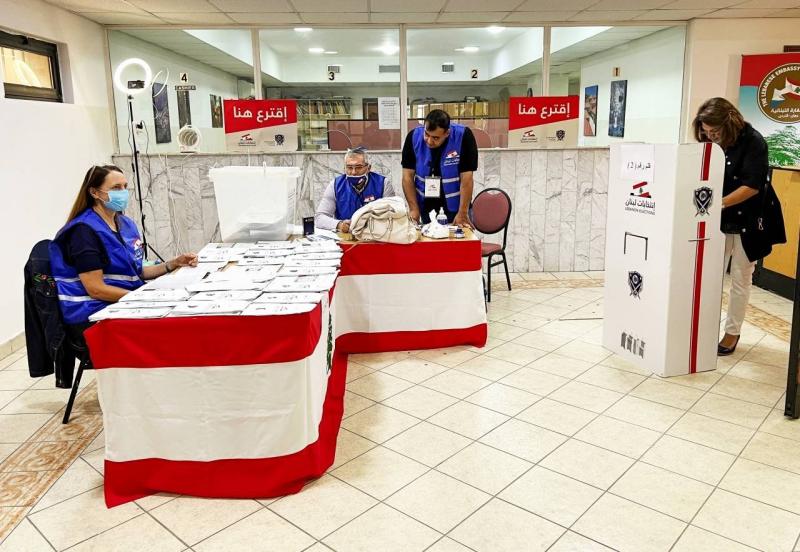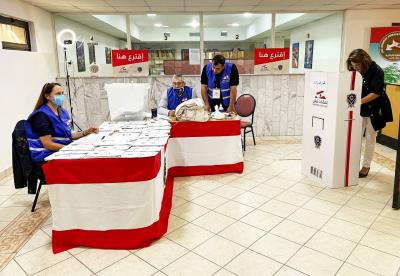Complaints about the management of the Ministry of Interior and Municipalities during the recent parliamentary elections were limited compared to the general situation in the country. Interior Minister Bassam Mawlawi justified the "transient errors that marred the democratic celebration" by citing "time constraints and limited resources." However, who provides the scientific answer to the loss of entire ballot boxes and the mishandling of results from others? Some might believe that the loss of some candidates by a narrow margin is part of the electoral mechanism adopted in all systems worldwide. However, in Lebanon's 2022 elections, discussing election fraud is no longer merely accusations voiced by losing candidates. According to the current proportional electoral law, a small number of votes can change the outcome based on fractional counting. Thus, the failure to count hundreds of votes, as has become evident, may necessitate a recount and change the results.
In analyzing the detailed results published by the ministry regarding voting rates in polling stations and counting the votes, electoral researcher Kamal Ghali found "suspicious errors." He confirmed to "Al-Akhbar" that "the details published about the counting of election results and candidate votes were not consistent with the results from the registration committees according to the polling stations." Ghali cited the results from Beirut's second district published on the official election website as an example, revealing that results from 66 polling stations in the neighborhoods of Bachoura, the port, Ain el-Mreisseh, Mazraa, Mosaitbeh, Ras Beirut, Zoukak el-Blat, and Mina el-Hosn were not published, including polling stations for voters from the district who registered abroad in countries such as Australia, the UAE, Denmark, Sweden, Germany, Saudi Arabia, the United States, Congo, Ghana, France, Egypt, Nigeria, and Hungary. The total number of voters in these stations reached 30,142.
Moreover, there are clear errors in counting results in other stations within the same district. Ghali provided as an example the results from polling station number 15 in Bachoura, where 319 voters cast their ballots. It was noted that 11 ballots were invalid, 13 were blank, and 308 were valid. Meanwhile, the counted valid ballots for candidates and lists amounted to 295, indicating a discrepancy of 13 ballots between the "counting" methods. In polling station 242 in Mazraa, 342 voters participated, with 24 invalid, 16 blank, and 318 valid. However, the valid ballots accounted for candidates and lists totaled only 302, showing a difference of 16 ballots. Ultimately, Ghali recorded errors in 464 stations within this district, amounting to a discrepancy of 1,393 ballots due to counting errors. The loss of voting results in 66 stations and inconsistencies in counting results from other stations muddied the results, particularly for candidates who lost by a thin margin. For instance, the list "Beirut Badha Qalb," supported by MP Fouad Makhzoumi, did not reach the second quota by a margin of only 300 votes.
In Tripoli, Ghali noted the presence of 6,880 invalid ballots, asserting that many were valid and did not deserve to be annulled. Additionally, several registration committees did not record the invalid ballots or include them in the counting process. He suggested that "Faisal Karami must have won the elections if we compare the magnitude of the egregious counting errors with his loss by just 35 votes." In Metn, Ghali calculated counting errors in 260 stations, resulting in 573 votes being "redirected to an unknown fate, preventing us from knowing whom they voted for," while candidate Jad Ghosn lost by a margin of 88 votes.
But what caused these errors? Ghali refrains from accusing the state of "mischief." Nevertheless, he considers the nature of the mistakes "unprecedented in election history." He argues that a primary reason was "the lack of training for the heads of polling stations and their assistants and the officials in the registration committees on the law used in this round. In the 2018 elections, they received direct training in a hall on the voting mechanism. In contrast, for the 2022 elections, the ministry merely sent a training video via phone!" In response to "Al-Akhbar's" inquiry, a source in the Ministry of Interior stated that "the ministry has no role in the counting process. It merely publishes what it receives from the registration committees and has no authority to audit or amend. Therefore, the question should be directed to the registration committees and not the Ministry of Interior."




